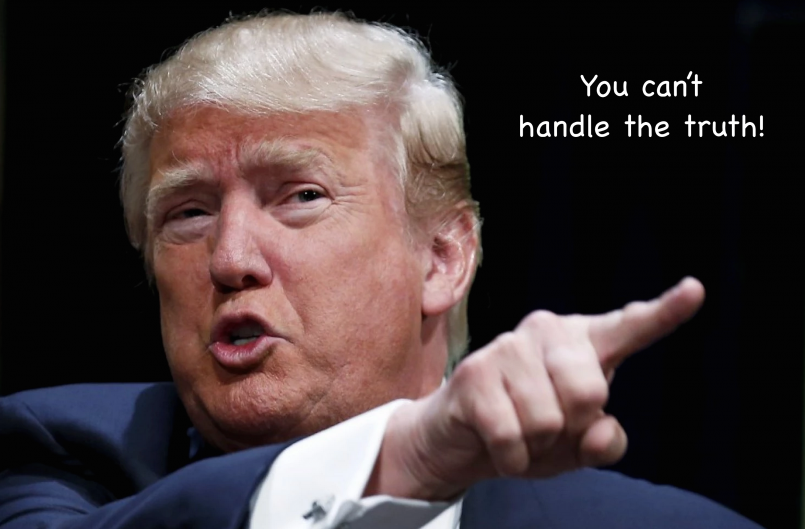Kuhn argued that science progresses in fits and starts.
庫恩認為,科學的發(fā)展本來就是時斷時續(xù)式的發(fā)展。
In normal science, a group of “practitioners” has settled on a way of defining and solving problems—a paradigm, a conceptual scheme.
就常規(guī)的科學發(fā)展而言,通常都是一群“從業(yè)者”走在定義問題,解決問題的道路上——這就是一種范式,一種概念圖式。
They have a way of looking at the world and are by and large happy with it.
他們會建立起他們整體滿意的理解世界的方式。
But then there are anomalies—things that don’t fit neatly into the scheme.
盡管如此,還是會出現(xiàn)異常情況——也即不能很好地納入已有圖式的情況。
One or two anomalies can perhaps be ignored, but as they accumulate, they threaten the stability of the paradigm.
一兩次異常或許還可以忽略不計,但隨著次數(shù)的累積,這些異常就會威脅到范式的穩(wěn)定。
Unexplained anomalies lead to a crisis, a crisis leads to a revolution, and a revolution leads to a shift to a new paradigm.
異常難以解釋便會引發(fā)危機,危機引發(fā)變革,變革則會引發(fā)范式的轉(zhuǎn)換。
This seems O.K. on the face of it.
表面上看,這似乎沒什么問題。
But Kuhn’s claim was deeper and far more radical.
但庫恩的主張更為深刻,也更為激進。
He argued that as science changes, so does the world.
他認為,科學在變,世界也在變。
If we take his theories literally, we could never adequately understand the past because it is cloaked from our view by changes in meaning.
如果我們僅從字面上理解他的假說,那我們永遠也無法充分理解我們的歷史,因為意義的轉(zhuǎn)變遮住了我們的雙眼。
And even though his views were seemingly embraced,
盡管表面來看,人們已經(jīng)接受了他的觀點,
it’s not clear to me that anyone ever carefully considered their implications.
但是否有人真的認真考慮過這些觀點的含義我依然不太清楚。
I would argue that they were horrific—that, in essence, they amounted to a denial of truth and even a denial of reality.
我個人認為,這些觀點細思極恐——因為這些觀點無異于否認真相,甚至否認現(xiàn)實。
Kuhn espoused a kind of crazy idealist philosophy: We make the world up as we go along.
庫恩信奉的是一種瘋狂的理想主義哲學:世界是隨著我們的前進被創(chuàng)造出來的。
It reminds me of the famous quote attributed to Karl Rove—who has denied saying it—during George W. Bush’s presidency:
這讓我想起了據(jù)說是卡爾·羅夫在喬治·W·布什擔任總統(tǒng)時留下的——他本人則拒絕承認說過此話——一句名言:
“We’re an empire now, and when we act, we create our own reality.”
“我們現(xiàn)在是一個帝國了,當我們采取行動時,我們就創(chuàng)造了我們自己的現(xiàn)實。”
I have very limited sympathy with these views.
我與這些觀點的共鳴非常有限。
We can argue about the number of people who went to a Trump rally,
打個比方,我們可以就參加特朗普集會的人數(shù)展開爭論,
but would anyone seriously deny that there is a number and a reality to the event?
但真的會有人嚴肅否認有一個確切的人數(shù)和確切的現(xiàn)實存在嗎?
 What’s scary about the present time is that people believe they can assert truth just by screaming louder than others or repeating themselves,
What’s scary about the present time is that people believe they can assert truth just by screaming louder than others or repeating themselves,
當下最可怕的是,人們以為,只要聲音比別人大,或是重復——
like the Bellman in Lewis Carroll’s The Hunting of the Snark: “What I tell you three times is true.”
就像劉易斯·卡羅爾《獵鯊記》中的敲鐘人所說的那樣:“凡是我重復過三次的事就是真的”——就能讓自己的話變成真相。
But we all know in our hearts that mere repetition and decibel level is no way to truth.
但我們深知,緊靠重復和分貝是無法通向真相的。
Part of the controversy hinges on the diferences between discovery and invention.
爭論的部分原因恰如“發(fā)現(xiàn)”和“發(fā)明”之間的差異。
To me, science and math are ultimately about undiscovered continents:
在我看來,科學和數(shù)學歸根結(jié)底都是在研究未被發(fā)現(xiàn)的大陸,
things that really do exist, although we might not yet know about them.
也即即便我們還不知道,但確實存在的事物。
The example that I often use is trilobites in the Cambrian period, more than 500 million years ago.
我經(jīng)常會舉5億多年前寒武紀時期的三葉蟲的例子。
Did trilobites know the value of pi? I think not.
三葉蟲知道圓周率的值嗎?我認為不知道。
Did any living creature in the Cambrian know the value of pi? No.
寒武紀有生物知道圓周率的值嗎?沒有。
But did pi exist with the same value that we know of today? Yes.
但那時的圓周率的值和我們今天知道的值一樣嗎?一樣。
Truth is all around us.
真相就在我們身邊。
We just have to look for it.
我們要做的就是發(fā)現(xiàn)它。
This task—figuring out where we stand with respect to truth and to the world around us—is mankind’s most noble activity.
這項任務(wù)——弄清我們對真相及我們周圍世界的立場——是人類最崇高的活動。
We give up on it at our peril.
放棄追尋真相,我們勢必付出慘痛的代價。
譯文由可可原創(chuàng),僅供學習交流使用,未經(jīng)許可請勿轉(zhuǎn)載。
 What’s scary about the present time is that people believe they can assert truth just by screaming louder than others or repeating themselves,
What’s scary about the present time is that people believe they can assert truth just by screaming louder than others or repeating themselves, What’s scary about the present time is that people believe they can assert truth just by screaming louder than others or repeating themselves,
What’s scary about the present time is that people believe they can assert truth just by screaming louder than others or repeating themselves,